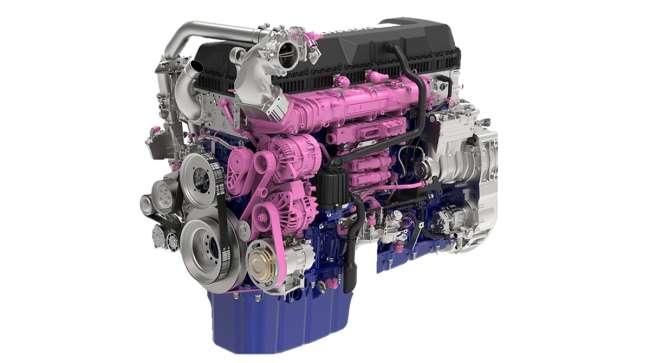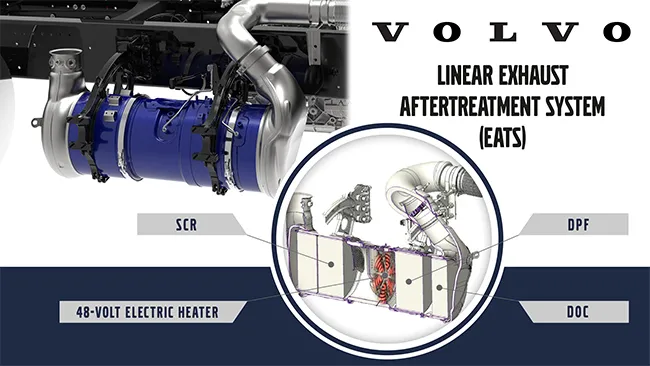Staff Reporter
Volvo Trucks North America Offers CARB-Compliant Engine

[Stay on top of transportation news: Get TTNews in your inbox.]
Volvo Trucks North America announced the availability of a diesel engine that meets California Air Resources Board 2024 Omnibus regulation requirements for nitrogen oxide and particulate matter emissions standards.
The company’s CARB-compliant D13 engine is available for order for the VNR and current VNL models and has a power rating of 455 horsepower and 1,650 pound-feet of torque, it said.
“To help our customers successfully navigate the complexities of the evolving regulatory landscape, Volvo has developed an engine that meets CARB’s new requirements. Volvo also offers information sessions to help our customers stay up-to-date and empower them to make informed decisions for their businesses,” said Johan Agebrand, VTNA director of product marketing.
“We continue to invest in new powertrain and vehicle technologies that support our sustainability agenda and our commitment to environmental stewardship. Volvo Trucks also continues to lead with the Class 8 Volvo VNR Electric truck and to invest heavily in the development of other zero- and near-zero-tailpipe emissions technologies,” he added.

The VTNA CARB-compliant engine’s exhaust aftertreatment system. (Volvo Trucks North America)
In addition, the company plans to launch battery-electric versions of the redesigned VNL flagship Class 8 tractor. In June, VTNA offered a first glimpse of a VNL 440 Electric. Orders are expected to open in the last couple of months of 2025 or at the beginning of 2026, VTNA Vice President of Strategy, Marketing and Brand Management Magnus Koeck told Transport Topics.
The company’s CARB-compliant engine features an emission control system integrated with a serviceable linear exhaust aftertreatment system. Each component, including the diesel oxidation catalyst, diesel particulate filter, aftertreatment heater, and selective catalytic reduction unit, is designed for individual servicing or replacement, VTNA said, adding that such an approach was expected to minimize waste and maximize operational life span.
Additionally, the engine features a 48-volt alternator and battery, a system that provides power to the truck’s heater during startup and low-load situations.
The CARB Omnibus regulation mandates a 75% reduction in NOx emissions and a 50% reduction in particulate matter from heavy-duty on-road engines for engine model years 2024-2026 compared with existing U.S. Environmental Protection Agency standards.
Jeff Loftus of FMCSA joins TT’s Seth Clevenger to discuss the current outlook on ADAS technology and how it will affect the industry at large. Tune in above or by going to RoadSigns.ttnews.com.
VTNA is the third Class 8 truck manufacturer to begin taking orders for a CARB-compliant engine after Paccar units Kenworth and Peterbilt announced separately in June they would do so.
Peterbilt on June 4 became the first top-tier Class 8 manufacturer to unveil a California-compliant diesel engine, with a modified Paccar MX-13 engine available for its Models 579, 567 and 589 trucks.
Peterbilt said the engines would be built at the Paccar engine plant in Columbus, Miss. Full production is set to begin in the fourth quarter of 2024.
Kenworth followed up by announcing in mid-June that a California-compliant version of the MX-13 was available for its T680, T880 and W990 Class 8 trucks.
Kirkland, Wash.-based Kenworth said orders for trucks with the CARB-compliant engine were also open and production was set to begin in Q4.
The Paccar units’ CARB-compliant MX-13 engines are available in two options: a 510-horsepower rating with 1,850 pound-feet of torque and a 455-horsepower rating with 1,650 pound-feet of torque.
Want more news? Listen to today's daily briefing below or go here for more info:





